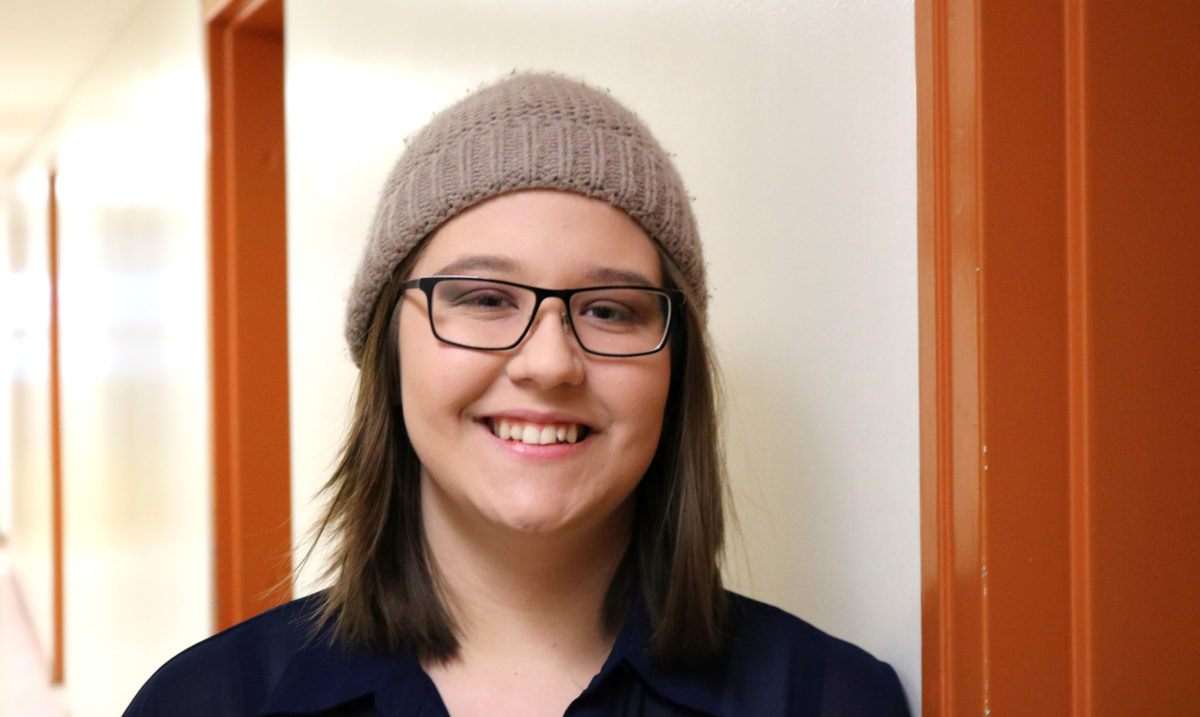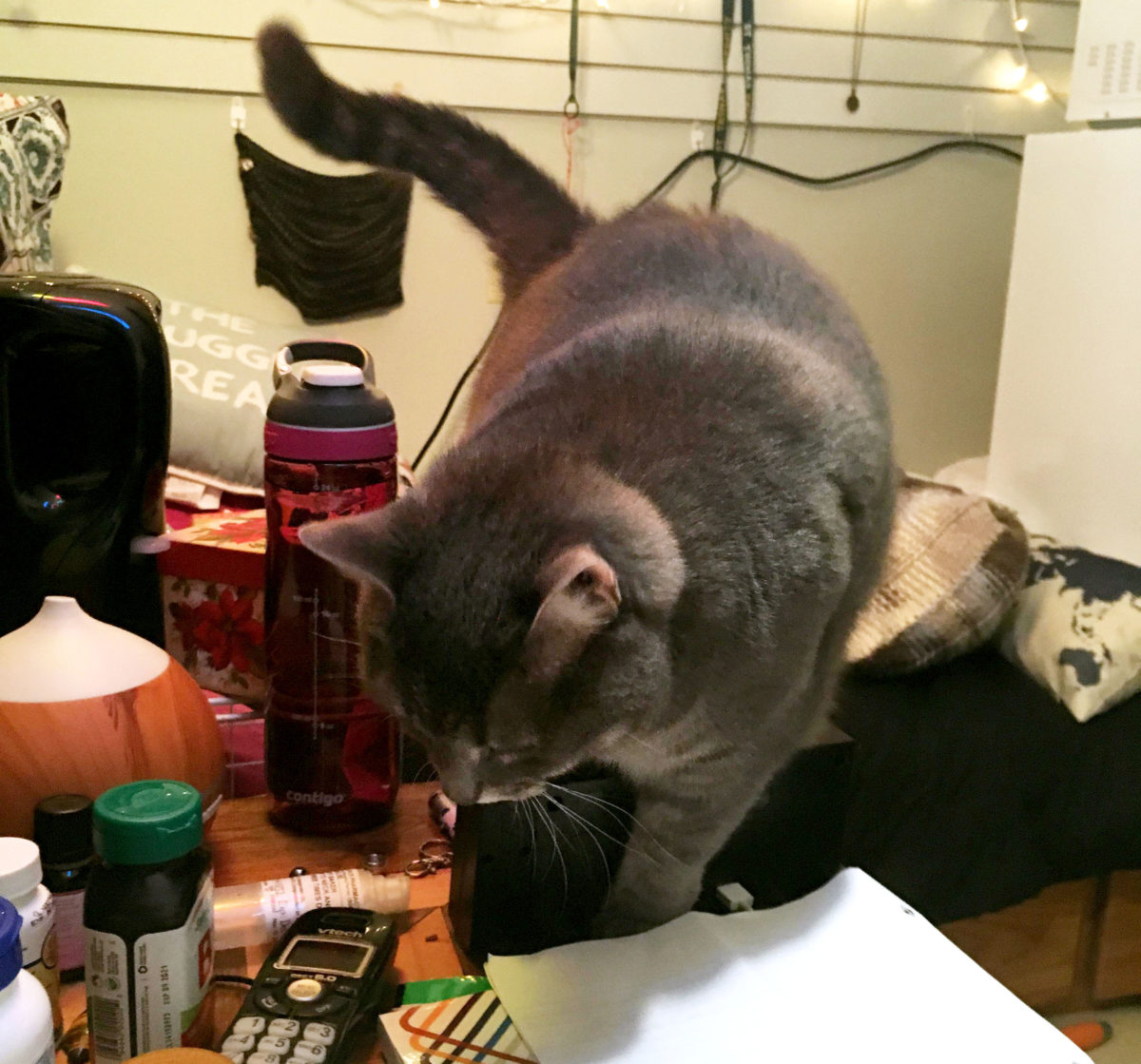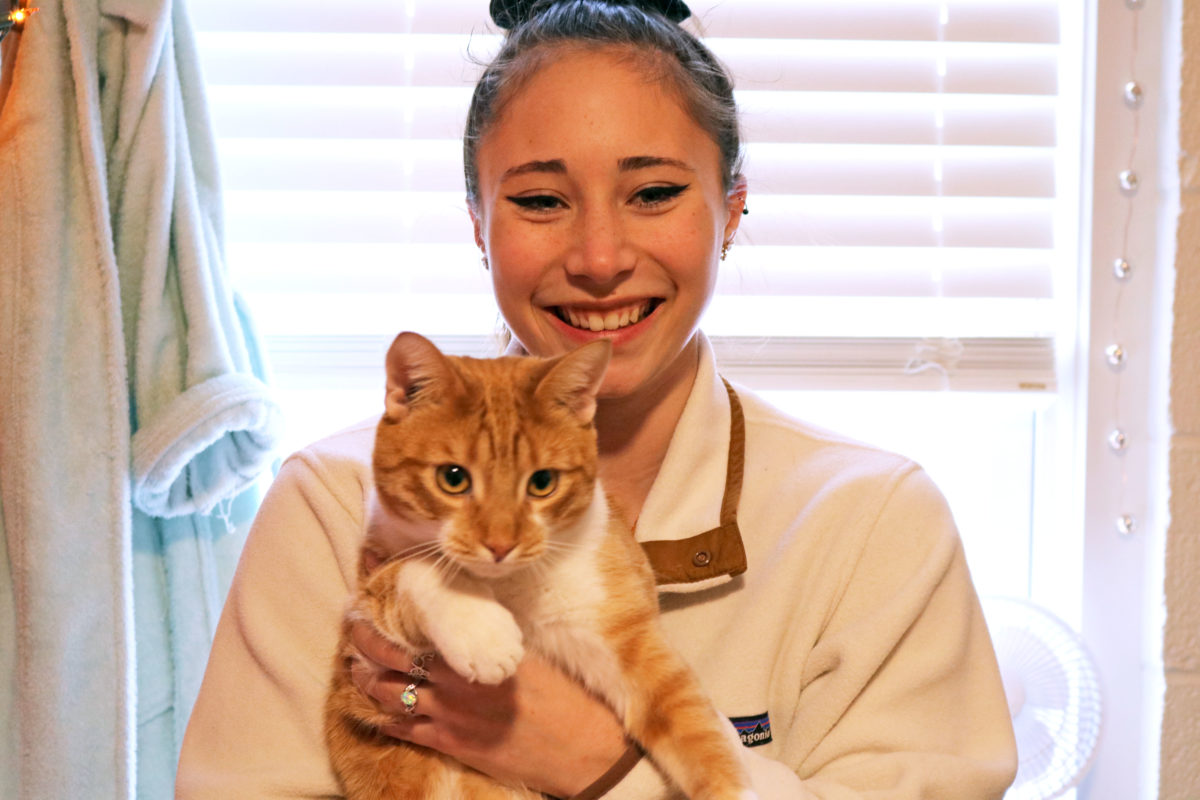A black metal dog cage sits beside Mary Baker’s spare bed in Vanier Hall. It’s an uncommon sight for a university dorm room, but for Baker, it’s the beginning of a new companionship.
The cage is a play area for her emotional support cat, Luna. Inside rests two silver food bowls, a white blanket and a grey litter box pushed to the back corner. On top is a scratching post shaped like a wave.
Baker welcomed her new companion on Jan. 19.
She never thought about adopting an emotional support animal until her therapist suggested it. She didn’t believe her anxiety and depression were severe enough, but when she returned to St. Thomas University after the fall reading week, Baker started having panic attacks and had trouble sleeping.
Baker has two cats at home in Bridgetown, Nova Scotia.
Knowing she’s most relaxed around cats, her therapist believed a support cat would ease Baker’s anxiety and help her sleep.
“Usually at home, I’d have a cat sleeping with me at night,” she said. “Just having them around me makes me happy.”

A few days before the holiday break, Baker applied for a support cat through Accessibility Services at St. Thomas University. She filled out a form and handed in a note from her doctor stating why she needed a support animal. Thirty-six hours after submitting the proper paperwork, Baker was approved to adopt a support animal.
“Just to be able to sit on my bed and have a cat purring beside me is just relaxing,” Baker said.
Kassidy Richard, a second-year student, also has an emotional support animal named Winston – a one-year-old orange cat named after Winston Churchill. He was adopted from the Humane Society in Waterville, Maine, and lives with Richard in Harrington Hall.
Richard decided to adopt a support animal before her first year at STU, after her therapist suggested it.


“Having an emotional support animal gives me something to live for on the days where it’s harder to want to be here,” Richard said. “I know I have to be here to take care of him.”
Richard said when she comes home, Winston meows loudly, just as excited to see her as she is to see him. When she’s laying on her bed, he likes to curl up on her lap and at night, he likes to lay on her pillow and rest his chin on her head.
The hardest part about living with Winston is locking him up in his cage whenever she’s not in the dorm room or has friends over, she said.
“Just to have a cat in a cage when he’s already in a small dorm room … makes me really sad to see,” Richard said.
STU has a set of rules for emotional support animals outlined in its Policy on Animals on Campus.


Other than having to have to lock Winston up, Richard agrees with the other rules outlined. These include allowing the cats to go outdoors, but not outside of the dorm room, and making sure no one in their wing has a phobia or allergy to cats.
Brock Richardson, the director of residence life, said STU won’t allow students to have animals for pleasure, but only if they require it to “function in university.”
Richardson believes STU adequately accommodates students who need support animals.
“If they have a condition which requires them to have an animal … that shouldn’t be a barrier to someone pursuing their education.”

